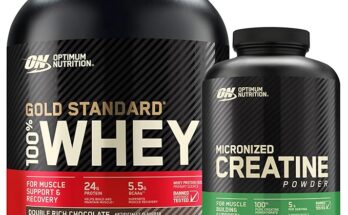Introduction to Nutrition
Optimal nutrition forms the foundation on which one leads a healthy life. It affects everything from energy levels to immune function to how the brain functions. However, in today’s extremely busy environment, it has become increasingly difficult for many to balance their diets. Nutritional intake optimization is more than just eating adequate volumes of food. It is a conscious effort on what we eat, how we eat, and what our body needs to perform at its best.
This paper is going to discuss optimizing nutritional intake, the importance of balanced feeding, and how you can make informed decisions to better your health.

The Importance of Nutrition to Body Function
Nutrition is how our body takes in and uses the food that we consume. Every nutrient has one basic function or a combination of functions: to provide energy, build and maintain tissues, immunity, or biochemical functions. Good nutrition means that the body is receiving what it needs to be able to carry out these functions adequately.
Nutrition Macronutrients: The Building Blocks of Nutrition
Macronutrients are forms of nutrients that the body requires in large quantities. Macronutrients include carbohydrates, proteins, and fats. Each one of these macronutrients is very important in the body.
Carbohydrates are the main forms of energy for the body. They are digested and broken down into a type of sugar known as glucose. Glucose is utilized by the body for energy needs in everything from brain functions to motion. The foods that include carbohydrates are grains, fruits, vegetables, and legumes.
The body requires proteins to repair and build tissues, whether muscles, skin, or organs. This protein then helps in manufacturing enzymes and hormones, which regulate most of the body’s operations. High protein foods include, but are not limited to: meat, fish, eggs, dairy products, legumes, and certain grains.
Fats are essential to absorb the fat-soluble vitamins, A, D, E, and K, store energy long term, and insulate and protect the organs. Healthy fats include those found in nuts, seeds, avocados, and olive oil and are deemed in important for optimal body functioning.
Micronutrients: The Helpful Helpers
It’s time to not forget those micronutrients, which are required by the body in smaller amounts. This group is made up of all the vitamins and minerals that aid a plethora of bodily functions.
Vitamins are organic nutrients that the human body needs metabolically for a variety of functions, including the production of red blood cells and maintenance of the immune system. Many other vitamins exist: Vitamin C is abundant in citrus fruits among others; Vitamin D is synthesized in the skin following exposure to UV light and is found in fortified milk products.
The major minerals of calcium, magnesium, and potassium are needed for many body activities including the maintenance of bones, nerves conduction and muscles contraction, and water balance.
Balanced Feeding-How It Is Done
Balanced feeding involves the intake of nutritionally adequate and safe food in the proper proportions. The nature of food is varied; these together meet the nutritional needs of the body. A diet has the proper ratio of macronutrients and micronutrients, hence facilitating proper functioning of the body with no nutritional deficiencies.
Key Components of a Balanced Diet
Variety: Ingestion of a wide range of foods ensures that various forms of nutrients are acquired. In regard to fruits and vegetables, different colors contain a wide array of vitamins and antioxidants that help people avoid diseases. Rotation among sources of proteins such as poultry, fish, and plant-based sources avoids deficiency in nutrients.
Moderation: Even apparently healthy foods can be over-consumed to an extent that they result in weight gain and nutrient imbalances. Moderation helps you not over-consume calories, while you will get enough nutrients.
Portion Control: The practice of portion control is one of the main elements of feeding the balance. In this respect, large portions may cause excess intake of food while smaller portions in their contents with nutritious food contribute to the maintenance of a healthy weight and nutritional balance.
Adequate Hydration: Water is highly essential for almost all bodily activities, which range from digestion and circulation to temperature regulation and waste elimination. Drinking enough water-usually about 2 liters a day for adults-helps the body function optimally.

Strategies to Optimize Nutritional Intake
Optimizing your nutritional intake involves acquiring knowledge in developing long-lasting healthy eating behavior. Some of the effective ways of improving your diet and, consequently, your health are discussed below.
1. Focus on Nutrient-Dense Foods
Nutrient-dense foods are basically those types of food that give a high amount of nutrient value per calorie count, including vitamins, minerals, phytochemicals, and other beneficial substances. Examples of nutrient-dense foods include fruits, vegetables, lean proteins, whole grains, and healthy fats. These foods supply essential nutrients without excess calories. Choosing nutrient-dense foods will improve body function, make weight management easier, and reduce the risk of chronic diseases.
Example: Instead of refined grains, which include white bread, introduce whole grains like quinoa or brown rice to increase fiber intake and improve digestion to stabilize blood sugar levels.
Balancing the macronutrients means getting the correct ratio that works for your body, between carbohydrates, proteins, and fats. There really is not one perfect ideal ratio; however, a commonly suggested range is that carbohydrates should constitute 45-65%, protein 10-35%, and fat 20-35% of total calories. Of course, these ratios will change based on one’s health goals, activity level, and specific nutritional requirements.
Carbohydrates: Whole grains and starchy vegetables instead of simple carbohydrates, like sugary snacks. Complex carbohydrates have a more sustaining action on energy and make one full.
Proteins: A mix of animal and plant-based proteins will be necessary for the intake of diverse amino acids. Excellent choices include lean meats, legumes, tofu, and dairy.
Fats: Stress unsaturated fats coming from avocado, nuts, seeds, and fatty fish. One has to consume saturated fats in moderation-only fried foods, fatty meats, and products of whole milk may contain saturated fat.
3. Eat Mindfully and Listen to Your Body
Mindful eating involves paying attention to feelings of hunger and fullness, not multitasking while eating, and savoring food as a source of pleasure and nutrition. It may help prevent overeating and develop healthier attitudes toward food. That also means tuning in to the signals of your body-when you’re hungry and when you’ve had enough.
Tip: Do not eat in front of the TV or while navigating your phone. Take your time and enjoy the flavors through proper chewing.
4. Focus on Whole, Fresh Foods
Among the foods normally prepared, too much sugar, fats, and preservatives have a negative effect on one’s health. Fruits, vegetables, whole grains, and lean proteins, which are fresh and whole foods by nature, have many nutritional benefits and do not contain impurities such as additives.
Example: Replace the chips and cookies with raw fruits, nuts, or yogurt for a power-packed snacking option.
5. Keep an Eye on the Serving Size
Being in control of the right portion sizes is another pragmatic tip that will prevent overeating. While it may be a little easy to over-consume, especially while one is eating out or consuming foods from packages, being aware of serving sizes can help a person maintain the right intake of calories and nutrients.
Tip: Eat on smaller plates, this automatically cuts down on portions and also watch portion sizes of food on the label
6. Hydrate
Water plays a major role in all physiological processes of digestion, transportation, and temperature control in the body. Inadequate hydration, even mild, impairs exercise performance, cognitive processes, and mood. Drinking water during the day maintains optimal physiological functioning and aids digestion and absorption of nutrients.
Tip: Have a water bottle always around to sip from; you can drink water even if you are not thirsty.
7. Individualize Your Diet to Your Needs
Since everyone is different due to age, sex, activity level, and a host of chronic health ailments, it makes sense that personalization will determine what exactly your body needs. For example, one may say that athletes require protein because this helps the muscles recover after strenuous exercise, while the calcium supports older adults’ bone health.
Example: One may be sedentary and thus require less caloric intake but possibly more antioxidant foods to help fight off the effects of oxidative stress and maintain immune function.

Special Considerations for Different Life Stages
With each stage of human growth and development, nutritional needs change. Let us take a closer look at how this happens in infancy through late adulthood.
1. Infants and Children
During early years, nutrition is important in growth and development. Breastfeeding or formula feeding gives the necessary nutrients, and with growth, the introduction of different types of healthy foods aids in the development of a child both mentally and physically.
2. Adolescents
At adolescence, growth spurts require more calories, protein, calcium, and iron. In returning, a balanced diet would allow teenagers to develop strong bones, keep up with the energy level, and manage brain functions.
3. Adults
In adulthood, a healthy diet supports energy levels, mental clarity, and disease prevention. An adult, therefore, should focus on the intake of adequate amounts of fiber, vitamins, and minerals that help prevent chronic diseases such as heart disease and diabetes.
4. Older Adults
Since metabolic rates decrease as an individual ages, nutritional needs also change with age. Older adults, therefore, require calcium, vitamin D, and fiber, which are very important in bone density and digestive health, respectively, while monitoring their calorie intake to avoid weight increase.
Conclusion
It is also not just a matter of proper nutrition but rather a conscious choice of food according to the specific needs of the organism. Balanced nutrition refers to taking a wide variety of different types of nutrient-dense foods in appropriate proportions, besides proper hydration and eating with awareness. Understanding these nutritional principles and adhering to them will help in better bodily functions, keeping diseases at bay, and living a healthier and meaningful life.
Make small and consistent changes in your eating habits today that will pay off in big health dividends tomorrow. If you want to feel more energetic, think more clearly, or lower your risk for chronic disease, it all begins with balanced feeding-the way to unlock your body’s full potential.




